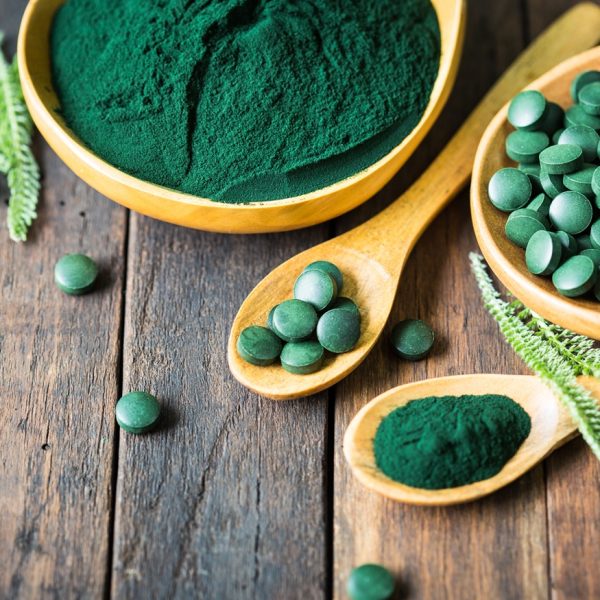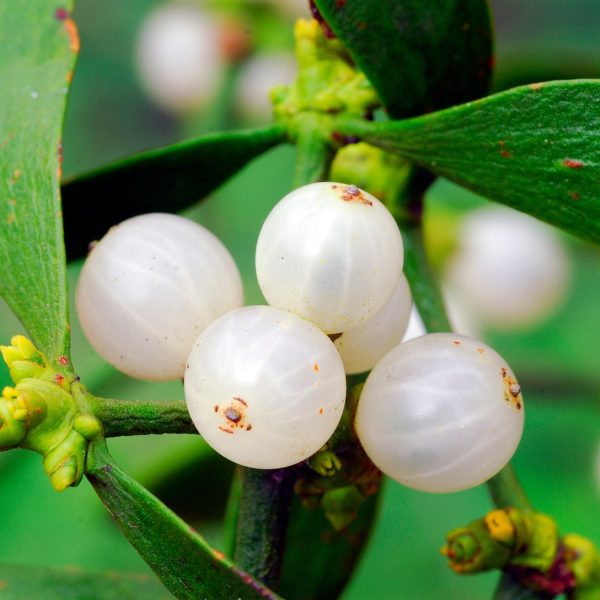Characterised by pain, indigestion and bloating, gastritis is an inflammatory condition of the stomach lining often arising from stress, infection or medication.
Understanding gastritis

Gastritis is a term used to describe an inflammation of the stomach lining. It is usually the result of another condition which triggers inflammation, and in many cases is asymptomatic, or can cause symptoms such as dyspepsia (indigestion).
It is difficult to ascertain how many people gastritis affects, since it is sometimes short-lived and will be self-limiting, so go unreported. However, recent studies suggest that one type of chronic gastritis (chronic atrophic gastritis) is estimated to affect around 25% of the global population (1).
The prevalence of other types of gastritis varies widely depending on geographical location, socioeconomic and environmental factors.
How does gastritis work?

Gastritis is a general term used to describe inflammation of the stomach lining, and due to its varying types and origins, is classified according to numerous factors, these include (1):
- Duration of the condition (acute or chronic gastritis)
- Histological changes and their severity in the tissues of the stomach lining (such as erosive or non-erosive gastritis)
- Anatomical location (which area of the stomach it appears in, such as the cardia, body, or antrum)
- Other physiological mechanisms
There tends to be a large degree of overlap between these classifications:
- Acute gastritis is a short-term inflammation of the stomach lining, which can be sudden in onset.
- Chronic gastritis goes on for a prolonged period and tends to have one of two histological pictures: atrophic, and non-atrophic. The factors influencing both acute and chronic gastritis will be discussed further in the ‘understanding the root’ section below (1).
- Reactive gastritis is typically due to an external trigger that causes histological changes in the gastric mucosa and leads to a low-grade inflammation. Reactive gastritis tends to be without symptoms, but can be detected on endoscopy, where mucosal lesions are visible with signs of erosions or ulcers (1).
- Erosive gastritis usually develops suddenly (acute erosive gastritis), although in some cases can be chronic, developing more slowly (2).
- Non-erosive gastritis is characterised by different changes in the stomach lining, which can include atrophy (wasting away), or changes of the stomach lining into different types of intestinal tissue. In this type of gastritis there is often an accumulation of white blood cells causing inflammation, which may occur throughout the entire stomach, or only in certain areas (2).
Understanding the root
There are numerous factors which seem to cause the different types of gastritis. These include infections, stress (usually resulting from severe illness or surgery), injury, some medications (such as aspirin and other nonsteroidal anti-inflammatory drugs [NSAIDs]), alcohol, and immune disorders (2).

Acute gastritis is caused by stress on the gastric mucosa, and can develop due to various factors, including ischemia (lack of blood supply), shock, corrosive agents, medications, radiation, trauma, severe burns, sepsis, or alkaline-bile reflux. Some infections, such as enteroviruses, can also cause a self-limited episode of acute gastritis (1).
Reactive gastritis can be caused by factors including medications, alcohol consumption, radiation exposure, and duodenal (bile) reflux (1).
Erosive gastritis is commonly caused by alcohol, stress resulting from severe illness, and irritants such as medications, especially aspirin and other NSAIDs. In rare cases it is caused by Crohn’s disease, radiation, or bacterial or viral infections.
Acute stress gastritis is a form of erosive gastritis caused by a sudden illness or injury. It is not known why serious illness can lead to gastritis, but it may be to do with decreased blood flow to the stomach, or the stomach’s compromised ability to maintain healthy mucosa.
Non-erosive gastritis is typically caused by Helicobacter pylori infection. The main cause of chronic gastritis is also H. pylori infection. This type of gastritis usually begins with non-atrophic inflammation, which if left untreated, over time becomes atrophic. Atrophy refers to the wasting and degeneration of cells.
Atrophic chronic gastritis is commonly caused by autoimmune factors, although the exact root cause of these immune changes remains unclear. Autoimmune gastritis is associated with chronic inflammation and severe atrophic gastritis, which affects the corpus body of the stomach, with the presence of autoantibodies against parietal cells or intrinsic factor.
Cases of atrophic gastritis which are not associated with H. pylori infection are uncommon. The estimated prevalence is 0.5–2%, which might be an overestimation (1). However, despite the association of autoimmune gastritis and H. pylori, it remains unclear whether H. pylori triggers these autoimmune responses in susceptible individuals, resulting in autoimmune gastritis, or whether autoimmune gastritis is an independent disorder. Either way, prolonged untreated atrophic gastritis can lead to stomach ulcers, suggesting that seeking support for gastritis is prudent.
When autoantibodies begin to change the structure of parietal cells or intrinsic factor in the stomach mucosa, this can lead to further conditions such as pernicious anaemia, whereby there is low iron and vitamin B12 levels. When there is unexplained low iron and B12, it may be beneficial to seek investigations to check for autoimmune gastritis.
Standard medical treatment of gastritis varies widely depending on the cause, and may include (2):
- Antibiotics
- Medication to control stomach acid, such as antacids, proton pump inhibitors or alginates
- Stopping anti-inflammatory painkillers (such as ibuprofen) or aspirin, if possible
- Stopping drinking alcohol (if gastritis is caused by alcohol)
Herbal support can be very beneficial in improving gastritis and assisting in healing ulcers caused by gastritis.
Signs and symptoms
Although gastritis can be asymptomatic, the most common symptom is usually indigestion symptoms, more generally referred to as dyspepsia. Symptoms may include (2, 3):
- Stomach pain
- Indigestion
- Feeling full and bloated
- Nausea
- Vomiting
- Less appetite than usual
- Gas
Reflux, which can be a cause of gastritis, can present with difficulty digesting food, a burning sensation in the oesophagus, food or acid bile coming up into the mouth. These symptoms may worsen at night when in bed.
Stomach ulcers, which can be a result of gastritis, can present with the additional symptom of a very specific pain point in the epigastric region (somewhere in the mid-region just below the ribcage where the abdomen begins).
Seek medical attention if you have symptoms of gastritis and:
- Have lost your appetite
- Feel full after a very small meal
- Recently lost weight without trying to
- Feels like a lump in your tummy
- Pain or difficulty swallowing
- Continuous or regular vomiting
Safety note: These can be signs of a more serious condition, so require medical attention promptly.
Herbal solutions
Among the primary aims of herbal treatment for gastritis would be to provide support for the gastric mucosa. This can be achieved with a combination of herbs with muco-protective properties, which have a restorative effect on the mucous membrane. Marshmallow root and licorice are fine examples, both promote healing to restore the health of the mucosal tissues.

Reducing inflammation would also be a treatment approach, both locally in the gastric mucosa, with herbs such as chamomile, marshmallow root, fenugreek, and meadowsweet, and systemically throughout the body, with herbs to support overall healthy immune function, balancing bile production, toning upper digestive tissues, and supporting overall stress responses which can in turn impact immune responses.
Herbal treatment would also seek to address and reduce exposure to aggravating factors (such as reflux, stress, alcohol consumption), and support recovery from predisposing infection, such as H. pylori.
Marshmallow root
Marshmallow root is high in a constituent known as mucilage (which is slimy in texture and possesses tissue healing properties). Mucilage is soothing for mucous membranes and will bring this effect to the mucosa of the stomach and upper digestive tract almost as soon as it comes into contact with them. It can be thought of as a soothing balm that coats the mucous membranes as it passes down the GI tract, protecting them and allowing them time to heal and regenerate.
Due to its cooling properties, marshmallow root can be particularly helpful in cases of gastritis where there seems to be an excess of heat involved, such as a burning sensation, or the presence of reflux. It can also be helpful in promoting the healing of ulcers.
Liquorice
Liquorice works wonders for inflammation in the upper digestive tract due to its anti-inflammatory, demulcent and mucoprotective properties. It is indicated specifically in gastritis, as well as conditions associated with gastritis such as reflux and peptic ulcers (4).
In a randomised, double-blind, placebo-controlled study, 142 patients with H, pylori infection were randomised into treatment or placebo groups. The treatment group were given a fermented milk drink containing Lactobacillus paracasei and Glycyrrhiza glabra (licorice) and the control group only fermented milk, once per day for eight weeks. Chronic inflammation improved significantly in the treatment group, as did gastrointestinal symptoms, whereas neither improved in the placebo group (5).
As in this study licorice was coadministered with Lactobacillus paracasei, it is unclear as to whether one of the two or both synergistically were responsible for the effect. However, the results are concurrent with traditional applications of licorice and suggest its promise as an effective treatment for patients with gastritis and H. pylori infection.

Chamomile
Chamomile is a well-known remedy for digestive issues with a long history of traditional applications for indigestion. Chamomile has anti-inflammatory and anti-ulcer properties, making it a great choice in cases of gastritis, especially when an H. pylori ulcer may also be a factor. For these reasons it is indicated specifically for gastritis, peptic ulcers, and reflux, making it an excellent choice when these arise alongside gastritis.
Chamomile is also helpful in cases of anxiety and for reducing stress, so when gastritis is accompanied by stress or anxiety it can be a wonderful herb.
Fenugreek
Fenugreek has a high mucilage content, so provides a protective layer to the gastric mucosa and allows tissue repair to take place. It also has anti-inflammatory properties making it an excellent choice for gastritis, where it is indicated specifically. It is also indicated in dyspepsia, so when symptoms of indigestion accompany gastritis it can be beneficial.
According to Ayurveda, fenugreek is considered helpful in convalescence and debility, particularly of the nervous system (6). This makes it beneficial when shock gastritis occurs following a bout of ill health, when one is recovering from a condition and requires support for gastritis, or when stress may be an underlying factor.
Safety note: Fenugreek contains saponins, which can be aggravating for reflux.
Meadowsweet
Meadowsweet is a traditional remedy for upper digestive tract issues, and indicated specifically in gastritis, reflux, dyspepsia (indigestion), and peptic ulcer.
This combination of characteristics, along with its anti-inflammatory properties, make it an excellent support in most cases of gastritis. The presence of tannins in meadowsweet bestows an astringent property, which is helpful in toning and promoting healing of the mucosa in the upper digestive tract. It also contains salicylic acid, which imbues meadowsweet with anti-inflammatory properties that are helpful in gastritis. This constituent is the derivative of aspirin, and so meadowsweet comes with a cautionary note for people with sensitivity to salicylic acid or aspirin.
Holistic solutions
Things which can help to improve symptoms of gastritis include (3):
- Reducing caffeinated drinks, such as tea, coffee, cola and energy drinks
- Using an extra pillow in bed so your head and shoulders are higher, to help stop stomach acid rising up your throat while you sleep
- Weight loss (if you’re overweight)
- Talk to your doctor if you regularly take anti-inflammatory painkillers (such as ibuprofen) or aspirin
References
- Azer SA, Awosika AO, Akhondi H. Gastritis. [Updated 2023 Oct 30]. In: StatPearls [Internet]. Treasure Island (FL): StatPearls Publishing; 2024 Jan-. Available from: https://www.ncbi.nlm.nih.gov/books/NBK544250/. Accessed June 24, 2024.
- Gastritis. MSD Manual Consumer Version. https://www.msdmanuals.com/home/digestive-disorders/gastritis-and-peptic-ulcer-disease/gastritis. Accessed June 24, 2024.
- Gastritis. NHS. https://www.nhs.uk/conditions/gastritis/. Accessed June 24, 2024.
- Bone, K, The Ultimate Herbal Compendium. Warwick, Queensland: Phytotherapy Press; 2007.
- Yoon JY, Cha JM, Hong SS, et al. Fermented milk containing Lactobacillus paracasei and Glycyrrhiza glabra has a beneficial effect in patients with Helicobacter pylori infection: A randomized, double-blind, placebo-controlled study. Medicine (Baltimore). 2019;98(35):e16601. doi:10.1097/MD.0000000000016601.
- Frawley D, Lad V. The Yoga of Herbs. 2nd ed. Twin Lakes: Lotus Light Publications; 2008.































